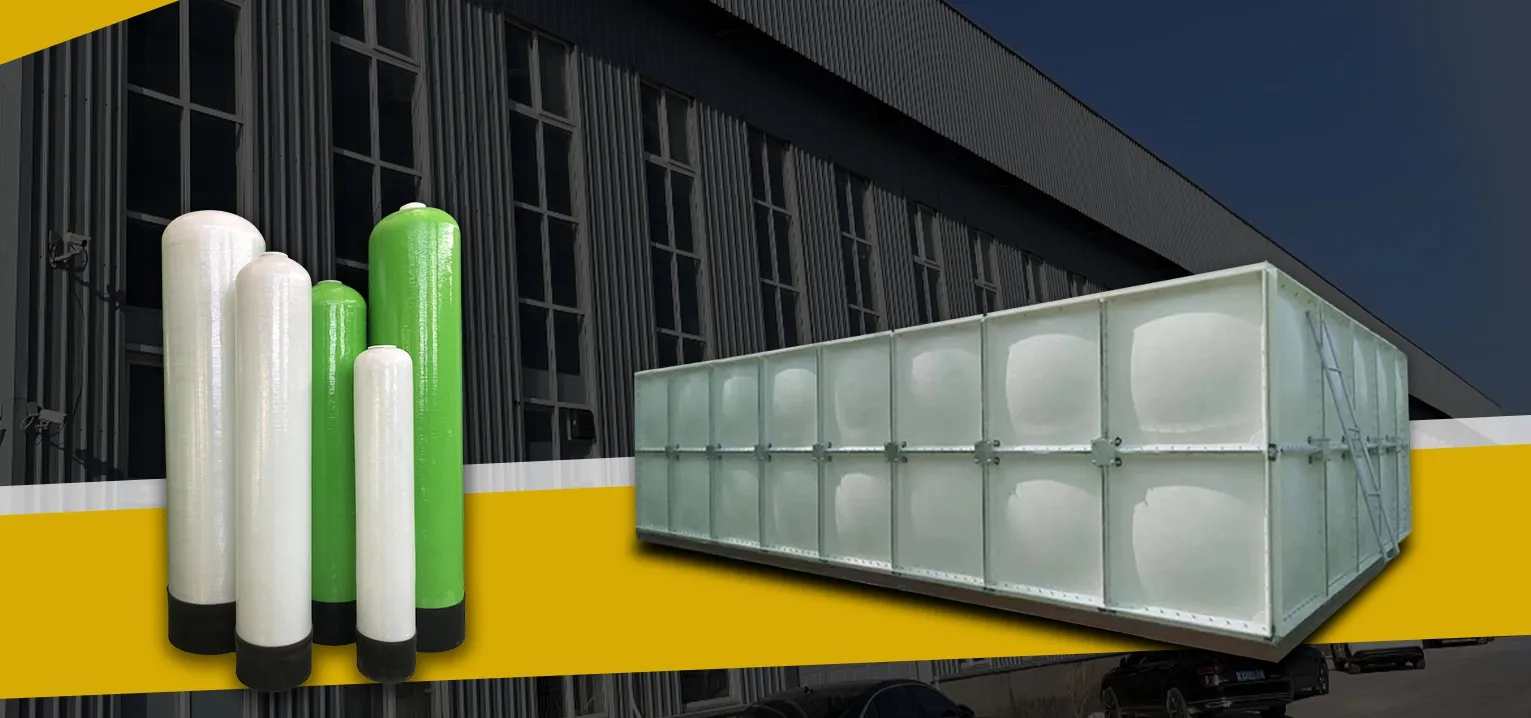loading...
- No. 9, Xingyuan South Street, Dongwaihuan Road, Zaoqiang County, Hengshui, Hebei, China
- admin@zjcomposites.com
- +86 15097380338
- Welcome to visit our website!
frp tank water filter
Understanding FRP Tank Water Filters A Comprehensive Overview
Water is an essential resource for life, and ensuring its purity is critical for health and well-being. One of the most effective solutions for maintaining clean water is the use of water filters. Among the various types of water filters available, FRP (Fiberglass Reinforced Plastic) tank water filters have garnered significant attention due to their durability, efficiency, and versatility. This article will explore the workings, benefits, and applications of FRP tank water filters.
What is an FRP Tank Water Filter?
An FRP tank water filter is a filtration system that utilizes fiberglass-reinforced plastic tanks to house various filtration media. These tanks are robust, lightweight, and resistant to corrosion, making them ideal for both residential and industrial applications. The filtration process typically involves multiple stages, including sediment filtration, carbon filtration, and often a final stage of reverse osmosis or UV disinfection, depending on the specific system design.
How Does It Work?
The FRP tank water filter operates on a simple principle as water passes through the tank, it encounters filtration media designed to remove impurities.
1. Pre-Filtration The initial stage usually involves a sediment filter that captures larger particles like sand, dirt, and rust. This protects the subsequent filters from clogging.
2. Carbon Filtration Following sediment filtration, activated carbon is employed to remove chlorine, volatile organic compounds (VOCs), and other chemicals that affect the taste and odor of water.
3. Additional Treatments Depending on the water source's quality and the targeted contaminants, additional filtration methods may be applied. These can include ion exchange, reverse osmosis, or ultraviolet (UV) light treatment, which effectively eradicates bacteria and viruses.
4. Post-Filtration Finally, the purified water is stored for use or sent directly to the tap, ready for consumption.
Advantages of FRP Tank Water Filters
There are several advantages to using FRP tank water filters, making them a preferred choice in many situations
1. Durability and Longevity FRP tanks are resistant to environmental stress, UV radiation, and chemical exposure, offering a longer lifespan compared to traditional materials like metal.
frp tank water filter

3. Corrosion Resistance Unlike metal tanks, FRP does not corrode, which makes it ideal for installations in harsh conditions or areas with highly mineralized water.
4. High Efficiency FRP tank filters effectively remove a wide range of contaminants, ensuring high-quality, purified water for various needs.
5. Cost-Effective Although the initial investment may be higher than some other filtration options, the longevity and reduced maintenance of FRP tank filters can result in significant cost savings over time.
Applications of FRP Tank Water Filters
FRP tank water filters are versatile and can be employed in various settings
- Residential Use Many households use FRP filters to ensure safe drinking water, particularly in areas with questionable water quality.
- Commercial Establishments Restaurants, hotels, and cafes rely on these systems to provide clean water for cooking, beverages, and general consumption.
- Industrial Applications Factories and industrial plants utilize FRP tank filters for process water treatment to maintain product quality and protect machinery from mineral buildup.
- Agricultural Use In agriculture, FRP filtration systems help in the treatment of irrigation water, ensuring that crops receive clean water free from pathogens and contaminants.
Conclusion
FRP tank water filters represent a modern, efficient solution for achieving clean, safe water in a variety of settings. Their durability, lightweight nature, and effectiveness in removing contaminants make them a reliable choice for homeowners and businesses alike. As awareness of water quality and public health continues to grow, the demand for advanced filtration systems such as FRP tank water filters is likely to increase. Investing in such technology not only promotes better health but also contributes to sustainable water management practices, ensuring a cleaner future for everyone.
-
The Rise of FRP Profiles: Strong, Lightweight, and Built to LastNewsJul.14,2025
-
SMC Panel Tanks: A Modern Water Storage Solution for All EnvironmentsNewsJul.14,2025
-
GRP Grating: A Modern Solution for Safe and Durable Access SystemsNewsJul.14,2025
-
Galvanized Steel Water Tanks: Durable, Reliable, and Ready for UseNewsJul.14,2025
-
FRP Mini Mesh Grating: The Safer, Smarter Flooring SolutionNewsJul.14,2025
-
Exploring FRP Vessels: Durable Solutions for Modern Fluid HandlingNewsJul.14,2025
-
GRP Structures: The Future of Lightweight, High-Performance EngineeringNewsJun.20,2025
